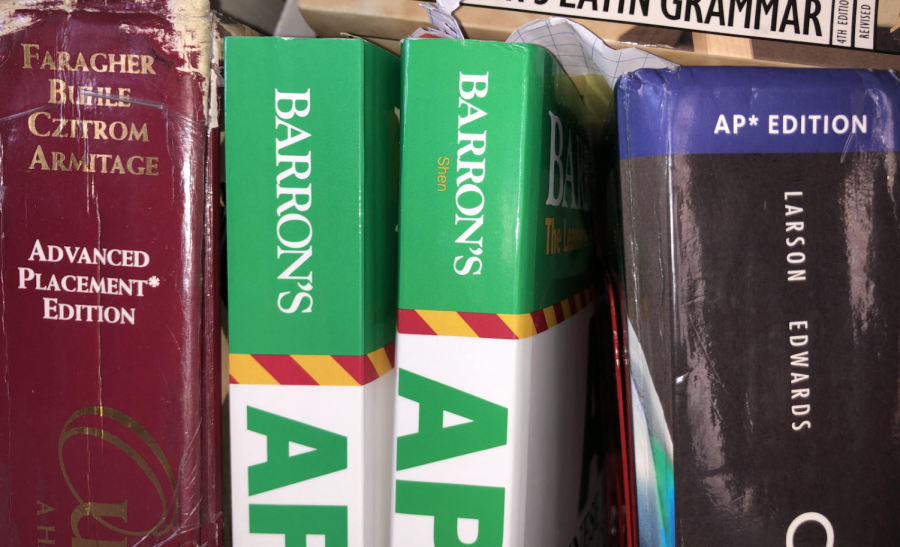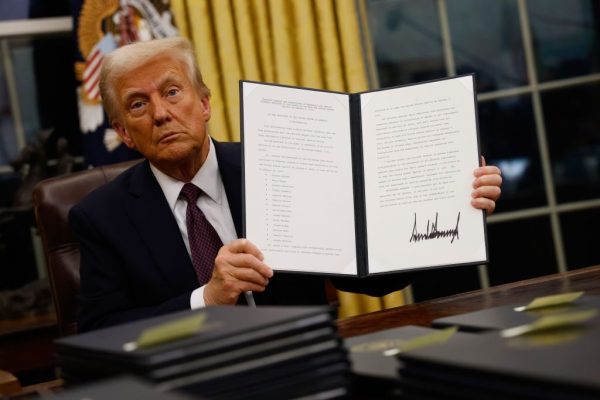AP Exams Should Not Feel Compulsory
AP test-takers can use one of many AP exam practice books to prepare themselves for the real exams.
This year, the AP program has made drastic changes. Rather than having sign-ups for exams in the middle of the year, The College Board has altered its rules so that students are expected to sign up for AP tests much earlier, and they are penalized if they change their minds. This system, in which the “standard” has become that every student taking an AP course takes the test, is unhealthy and goes against the entire reason for taking AP courses in the first place. The College Board, in promoting this scheme to public schools, has cultivated a secondary education for Americans, which places emphasis on arbitrary requirements that encourage over-work and burnout.
Coercing every student who takes an AP course to take the exam results in nothing other than poor test scores. According to a Washington Post article by Valerie Strauss, average AP scores have decreased across the board in the past few years, and this decrease coincides with the expansion of the AP program to many new students. Why are more students taking AP exams? This is due to a combination of factors, one of which is the perception that AP courses often give students college credit. The expectation that AP courses will save students thousands of dollars is not always true. While most AP test scores above a four can be exchanged for credit at universities, the lack of a standardized course system across universities in the United States means that universities’ policy on AP scores can change without explanation. Thus, the value placed on AP scores is not uniform. Because of these volatile conditions, the College Board often chooses to alter the AP curriculum in order to convince universities to value AP scores more. This results in an inconsistent and unjust experience. For example, while last year’s AP United States Government and Civics exam required knowledge of more than forty Supreme Court cases, 2020’s exam covers less than half that number. AP World History underwent similar changes for the 2019/2020 school year, resulting in the elimination of more than 5,000 years of history from the test. Surely, teachers should have more of a say in how these mysterious decisions take place.
Unpredictable changes like these contribute to a hostile learning environment, where the College Board has become more concerned with pleasing universities than they are with creating a test that fits students’ needs. In order to increase the number of AP test-takers, or, in other words, enlarge the sums of money they have amassed, the College Board has forgotten the true purpose of AP tests. While College Board Executives change entire curricula on a whim from their lavish Manhattan headquarters, students must live with the knowledge that the course they are taking could be revised to require 30% less work for the next school year. The culture of anxiety surrounding secondary school owes a lot to the unchecked actions of this “nonprofit” organization.













Rachel Plasky • Mar 3, 2020 at 9:25 am
You have definitely vocalized what a lot of people are feeling. It is almost as if College Board has sacrificed the AP class for the AP exam…